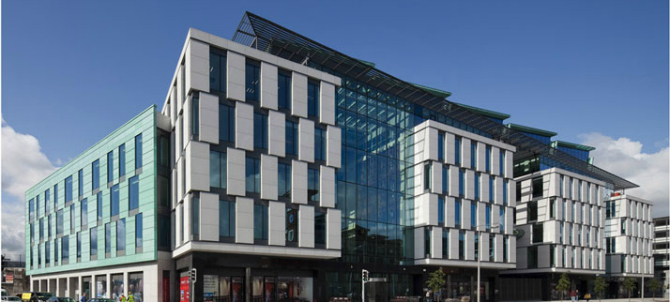Following a request from the Graduate Students’ Union (GSU) President Gisèle Scanlon, members of the GSU will receive access to the Covid-19 screening programme from Monday, January 25.
Access to screening will be phased out among schools, starting with Biochemistry and Immunology, Chemistry, Dental Science, Medicine, Microbiology and Genetics, Nursing and Midwifery, Pharmacy and Pharmaceutical Sciences and Physics. Other schools are to be screened depending on capacity in the following weeks.
Scanlon had requested access to the screening programme, known as Trini-Screen, “as a measure to safeguard and reassure our research community going forward whilst conducting research”.
After receiving the news that students conducting postgraduate research in the faculties of science and medicine would be eligible for screening, Scanlon reported that the screening would “I hope have a lasting impact on researchers’ peace of mind and mental health”.
PhD candidate Nilki Aluthge Dona commented that “every essential researcher will feel safe attending College knowing that they are not transmitting the virus”, and continued stating that “it makes me feel secure knowing that my daughter will be safe and I am not a carrier”.
The Trini-Screen study will continue in the same manner as was offered to residents of Trinity Hall and on-campus residence from the beginning of the academic year.
The pilot study was launched in September for residents of Trinity Hall and campus accommodation services and comprises of a voluntary, weekly saliva sample that will be tested to determine the current level of Covid-19 infection at a population level.
The tests are not designed to determine current infection in an individual, as they use a different method of detection than the HSE-approved test.
If a staff member or student elects to participate, he or she is to collect a saliva sample pack from several designated points on campus, including the foyer of the Trinity Biomedical Sciences Institute (TBSI) and the Arts Building Concourse.
Packs are to be labelled with the staff or student ID number alongside a signed Consent Form. After collecting one’s saliva, the packs are then to be dropped off on a weekly basis at the designated collection points.
Participants are reminded not to eat, drink, smoke or brush their teeth prior to taking the sample, which must be provided the same day of its drop-off.
Members of all eight GSU schools involved in the first iteration of the study have expressed relief that the programme is now available to graduate students.
Microbiology PhD candidate Candida Trigueiros indicated that the screening programme “constitutes one more tool among the precautionary measures” against Covid-19, and stated: “I really encourage those for whom it is made available take advantage and take part.”
Similarly, David Lee, a PhD candidate in the School of Medicine, said he would “highly encourage all researchers within the School of Medicine and throughout the University to make use of this system”.
Since the beginning of the academic year, most Research MScs, PhD students, and postdoctoral students had their experiments delayed due to the continuing threat of Covid-19. While in-person research has resumed, timetables have been introduced that limit the amount of people in a laboratory space to one at a time.
Article updated Sunday, Jan. 24 at 11:03 pm to correct previous information that the screening was only available to undergraduate students. Since September, the screening has been available to all residents of Trinity Hall and campus accommodation.






